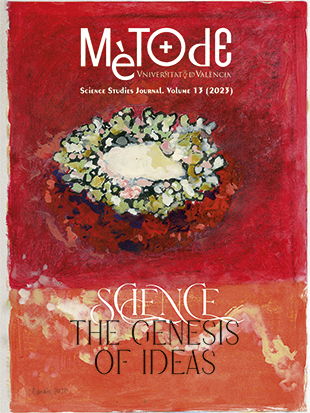Social evolution: A biological history of cooperation
DOI:
https://doi.org/10.7203/metode.13.22348Keywords:
biology, cooperation, altruism, social behaviour, human societies, social evolution Abstract
Abstract
To talk about life is to talk about cooperation. Its evolutionary origin, different levels of organisation, and current complexity are the result of cooperation between different biological entities. This is also the case with animal societies, including the most complex of them all, the human society. Our language and extraordinary culture, our cities and vast social networks, are the fruit of cooperation. In a world dominated by Darwinian competition, how has cooperation come to play such an important role? Social evolution, the study of the biological bases of cooperation, tackles this question. From the origin of the first cell and to the explosion of social life in animals, social evolution explains how and why cooperation has guided life on our planet.
 Downloads
Downloads
 References
References
Bourke, A. F. G. (2011). Principles of social evolution. Oxford Series in Ecology and Evolution. Oxford University Press.
Darwin, C. (1859). The origin of species. Murray & Sons.
Dennet, D. C. (1995). Darwin’s dangerous idea. Simon & Schuster.
Hamilton, W. D. (1964a). The genetical evolution of social behaviour. I. Journal of Theoretical Biology, 7, 1–16. https://doi.org/10.1016/0022-5193(64)90038-4
Hamilton, W. D. (1964b). The genetical evolution of social behaviour. II. Journal of Theoretical Biology, 7, 17–52. https://doi.org/10.1016/0022-5193(64)90039-6
Laland, K. (2008). Animal cultures. Current Biology, 18, R366–R370. https://doi.org/10.1016/j.cub.2008.02.049
Marshall, J. A. R. (2015). Social evolution and inclusive fitness theory. Princeton.
Maynard Smith, J. (1964). Group selection and kin selection. Nature, 201, 1145–1147. https://doi.org/10.1038/2011145a0
Riehl, C., & Frederickson, E. (2015). Cheating and punishment in cooperative animal societies. Philosophical Transactions of The Royal Society B, 371, 20150090. https://doi.org/10.1098/rstb.2015.0090
Trivers, R. (2017). Vida indómita. Antoni Bosch.
Downloads
Additional Files
Published
How to Cite
-
Abstract2024
-
PDF680
-
Untitled (Español)9
Issue
Section
License
![]()
All the documents in the OJS platform are open access and property of their respective authors.
Authors publishing in the journal agree to the following terms:
- Authors keep the rights and guarantee Metode Science Studies Journal the right to be the first publication of the document, licensed under a Creative Commons Attribution-NonCommercial-NoDerivatives 4.0 International License that allows others to share the work with an acknowledgement of authorship and publication in the journal.
- Authors are allowed and encouraged to spread their work through electronic means using personal or institutional websites (institutional open archives, personal websites or professional and academic networks profiles) once the text has been published.






